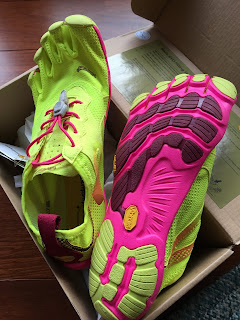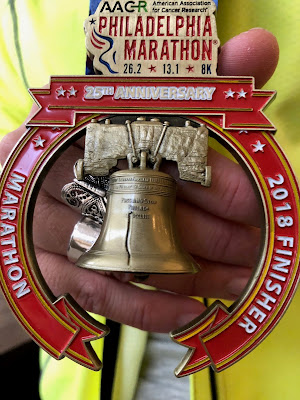iRun 4 PKD
This year I knew I wanted to my running to benefit someone else besides just me. I looked at a few popular charities that I see a lot of runners support. They are all very good charities and need to be supported but they didn't speak to my heart. I wanted it to be something I could be passionate about. Then it hit me. DUH!
PKD. Polycystic kidney disease.
The following information is from National Kidney Foundation (I've abbreviated some the page here)
If you're asking why PKD speaks to my heart it's because it runs in my family. My grandmother and uncle had it (both are now deceased), my mom, my aunt, a cousin and another family member have it. My aunt has been on a kidney transplant waiting list for 3 years now and my mom's kidney function is almost to the point of needing dialysis or seeing if she'd be eligible to be placed on the waiting list.
So far I have not been diagnosed with this but I continue to watch for signs. Two family members were outside the normal ages of diagnosis when they found out they have it so I know it can show up at anytime.
iRun 4 PKD for those who can't. My mom's kidneys are so large that she has a hard time walking very fast or playing with her grandkids or doing chores around the house without her ribs pushing on her kidneys. She would love to be more active than she is but is limited by pain.
iRun 4 PKD for those laying on a bed in a dialysis ward, having the toxins pulled from their blood by a machine because their kidneys no longer can do it.
iRun 4 PKD for my children's future. Even though I don't have this disease, my children still have a chance of having it passed to them. I hope by raising money for research and treatments I can give them hope in a future without PKD.
Please go to my donation page, Kirsten Reynolds Run for PKD, to read a little more about my mission this year and to make a donation for PKD.
Thank you for partnering with me to fight this disease.
PKD. Polycystic kidney disease.
The following information is from National Kidney Foundation (I've abbreviated some the page here)
What is polycystic kidney disease?
Polycystic kidney disease (also called PKD) causes numerous cysts to grow in the kidneys. These cysts are filled with fluid. If too many cysts grow or if they get too big, the kidneys can become damaged. PKD cysts can slowly replace much of the kidneys, reducing kidney function and leading to kidney failure.
How common is PKD?
In the United States about 600,000 people have PKD. It is the fourth leading cause of kidney failure. It is found in all races and occurs equally in men and women. It causes about 5% of all kidney failure.
What other organs besides the kidney are affected by PKD?
PKD can affect other organs besides the kidney. People with PKD may have cysts in their liver, pancreas, spleen, ovaries, and large bowel. Cysts in these organs usually do not cause serious problems, but can in some people. PKD can also affect the brain or heart. If PKD affects the brain, it can cause an aneurysm. An aneurysm is a bulging blood vessel that can burst, resulting in a stroke or even death. If PKD affects the heart, the valves can become floppy, resulting in a heart murmur in some patients.
Does everyone with PKD develop kidney failure?
No. About 50 percent of people with PKD will have kidney failure by age 60, and about 60 percent will have kidney failure by age 70. People with kidney failure will need dialysis or a kidney transplant.
How is PKD treated?
At present, there is no cure for PKD. However, a lot of research is being done. Many studies suggest that some treatments may slow the rate of kidney disease in PKD, but further research is needed before these treatments can be used in patients. Other studies are helping us understand the genetic basis of PKD.
Who is at risk for developing PKD?
PKD runs in families. It is an inherited disorder that is passed from parents to children through genes. Genes are the basic elements of heredity. At conception, children receive a set of genes from each parent. They determine many characteristics such as hair color and eye color. Genes can also determine the likelihood of developing a disease.
If you're asking why PKD speaks to my heart it's because it runs in my family. My grandmother and uncle had it (both are now deceased), my mom, my aunt, a cousin and another family member have it. My aunt has been on a kidney transplant waiting list for 3 years now and my mom's kidney function is almost to the point of needing dialysis or seeing if she'd be eligible to be placed on the waiting list.
So far I have not been diagnosed with this but I continue to watch for signs. Two family members were outside the normal ages of diagnosis when they found out they have it so I know it can show up at anytime.
iRun 4 PKD for those who can't. My mom's kidneys are so large that she has a hard time walking very fast or playing with her grandkids or doing chores around the house without her ribs pushing on her kidneys. She would love to be more active than she is but is limited by pain.
iRun 4 PKD for those laying on a bed in a dialysis ward, having the toxins pulled from their blood by a machine because their kidneys no longer can do it.
iRun 4 PKD for my children's future. Even though I don't have this disease, my children still have a chance of having it passed to them. I hope by raising money for research and treatments I can give them hope in a future without PKD.
Please go to my donation page, Kirsten Reynolds Run for PKD, to read a little more about my mission this year and to make a donation for PKD.
Thank you for partnering with me to fight this disease.



Comments
Post a Comment